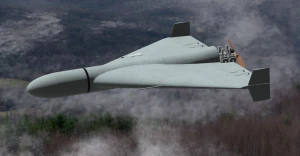
Macron's proposal for troop deployment in Ukraine sparks responses from Stoltenberg, NATO countries, Russia
Stoltenberg and NATO leaders clarified that no collective decision has been made to send troops to Ukraine, while Russia labeled the suggestion as a declaration of war
NATO Secretary General's response
NATO Secretary General Jens Stoltenberg told AP that the Alliance has no plans to deploy troops to Ukraine, despite some European countries contemplating the possibility.
Stoltenberg highlighted NATO's substantial assistance to Ukraine since 2014.
"NATO allies are providing unprecedented support to Ukraine. We have done that since 2014 and stepped up after the full-scale invasion. But there are no plans for NATO combat troops on the ground in Ukraine," he said.
Poland's Defense Ministry reaction
Polish Deputy Minister of National Defense, Cezary Tomczyk, stated that Poland is not entertaining the idea of sending its military to Ukraine, according to Radio Zet.
President Andrzej Duda, after a meeting of Western allies in Paris, emphasized that discussions on troop deployment to Ukraine were intense. Duda underscored, "There are absolutely no such solutions."
Tomczyk, commenting on Duda's visit and discussions, affirmed, "There is no such project or idea in Poland."
Swedish government's stance
Sweden's Prime Minister, Ulf Kristersson, expressed that sending troops to Ukraine is currently irrelevant for Sweden, SVT reports.
He highlighted the lack of consensus in the West on this matter, stating, "For Sweden, it is completely irrelevant at the moment."
Kristersson emphasized that deploying troops to another part of the world doesn't impact NATO, asserting, "The French tradition is not the Swedish tradition."
Germany’s response
German Chancellor Olaf Scholz firmly rejected the idea of sending Western troops to Ukraine.
In a Twitter statement, he emphasized, "Yesterday in Paris, we agreed that everyone should do more for Ukraine. Ukraine needs weapons, ammunition, and air defense. We are working on it. One thing is clear: there will be no ground troops from European countries or NATO. This also applies to us."
Czech Prime Minister's stance
Czech Prime Minister Petr Fiala stated at a press conference in Prague that the government is not considering sending troops, Reuters report.
Fiala emphasized the need to develop existing support methods, focusing on military aid, humanitarian, and economic support. He expressed confidence in maintaining the current approach after the Russian aggression.
Spain’s response
Spain disagrees with France's proposal to deploy European ground troops to Ukraine, according to government spokeswoman Pilar Alegria. At a press conference, Alegria stated that Spain aims to limit aid to sending additional weapons and materials to Kyiv, diverging from the ground troop proposal, according to Reuters.
EU Stance
The European Union is united in its commitment to providing Ukraine with necessary support in the face of Russian aggression, according to Peter Stano, Lead Spokesperson for foreign affairs and security policy, as reported by European Pravda.
Stano affirmed the EU's position, stating that the EU must do whatever it takes to help Ukraine win its justifiable defensive war against illegal aggression. He highlighted the ongoing support from member states, encompassing economic, humanitarian, political, diplomatic, and military assistance, including sanctions.
Military support, Stano explained, involves coordination at the EU level through the European Peace Fund, reimbursing member states for supplying weapons to Ukraine. However, he emphasized that the primary responsibility for military support lies with the member states, who decide the best ways to assist Ukraine based on its needs.
Stano clarified that there is no decision at the EU level to send any troops or ground forces to Ukraine to participate in the fighting. The current consensus within the EU is to provide Ukraine with the necessary resources for its struggle, with decisions being made at the member-state level.
In essence, member states decide how best to support Ukraine, and the EU consensus is to furnish Ukraine with whatever it needs for its fight, Stano underscored.
Russia's response to Macron's statements
Russia responded to Macron's recent remarks, with Dmitry Medvedev, Former President and Deputy Head of the Security Council of the Russian Federation, attributing Macron's statements to "health problems":
Medvedev claimed, "He stated that Europe needs the defeat of Russia for its security, and therefore should send long-range missiles to the 'Nazis' in Kyiv and consider the introduction of the troops of individual NATO states into the 'special military operation zone'. Together with the recent desire to share France's nuclear arsenal with all willing Europeans, it seems that Macron's speech impediment has become a protracted and painful problem."
Vice-speaker of the Federation Council, Konstantin Kosachov, suggested that sending NATO troops to Ukraine could be seen as a declaration of war, as reported by TASS.
The Kremlin, through Putin's press secretary Dmitry Peskov, commented on Macron's proposal to send NATO troops to Ukraine. Peskov stated that if military forces are deployed, "we will have to talk not about the probability but about the inevitability of a direct confrontation between Russia and NATO."
Peskov urged countries considering sending troops to Kyiv to evaluate the situation's impact on their interests and the interests of their citizens.
He highlighted, "In general, here, probably, the very fact of discussing the possibility of sending some contingents of NATO countries to Ukraine is, of course, very important, a new element."
- On February 26, around 20 European leaders convened in Paris to discuss threats from Russian President Vladimir Putin. Ukrainian President Volodymyr Zelenskyy addressed them.
- Post-conference, French President Emmanuel Macron suggested that sending Western ground troops to counter Russian aggression should not be ruled out in the future.
- Slovak Prime Minister Robert Fico claimed on February 26 that some NATO and EU member countries are allegedly discussing the possibility of deploying their troops to Ukraine after signing bilateral agreements with Kyiv.
- News












































